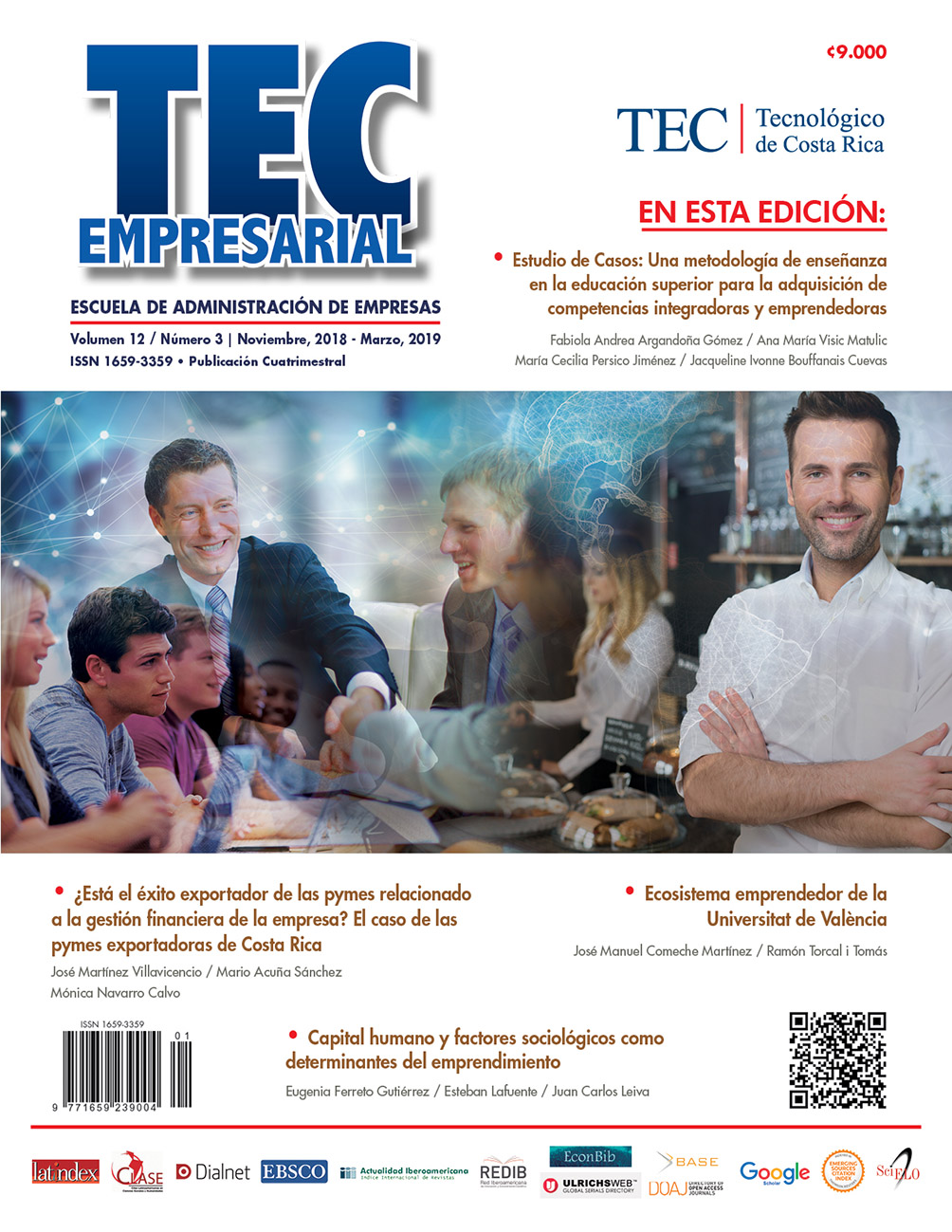Case study: A teaching methodology, in higher education, for the acquisition of integrative and entrepreneurial competencies
Main Article Content
Abstract
The purpose of this research is the pilot application of the case method as a teaching methodology for the acquisition of integrative and entrepreneurial competencies by the students of Commercial Engineering at the Faculty of Economic and Administrative Sciences of the Universidad Central de Chile, during the first four semesters of the degree. This gives us the opportunity to train teachers in case teaching materials, compare learning curves between students who experienced this teaching-learning methodology and those who did not; and, finally, evaluate the valuation results that students give to experience. A detailed analysis of the obtained academic results is carried out, finishing with some reflections on the advantages and disadvantages that this methodology has to offer for the teaching of the different spheres of human knowledge and its adequacy to in the context of learning skills and competencies. For each evaluated aspect, the results of the control group are presented first, then those of the experimental group and finally a comparison of the obtained results between the two groups. The most relevant training gaps in both groups refer to the use of economic-mathematical concepts and models in everyday situations.
Article Details
The digital version of the journal is registered under the BY-NC-ND 4.0 Creative Commons license. Therefore, this work may be copy and redistribute the material in any medium or format, as long as you give appropriate credit, provide a link to the license, and indicate if changes were made. You may do so in any reasonable manner, but not in any way that suggests the licensor endorses you or your use.
The authors keep the copyright and give the journal the right of the first publication and the possibility of editing, reproducing, distributing, exhibiting and communicating in the country and abroad through printed and electronic means. On the other hand, the author declares to assume the commitment on any litigation or claim related to the rights of intellectual property, exonerating of responsibility to the Business School of the Costa Rica Institute of Technology.


